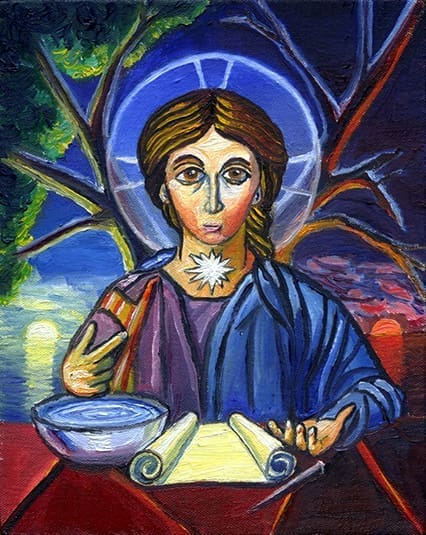Journey from chocolates to the cross
By LORRAINE V. MURRAY, Commentary | Published March 5, 2020
Selecting a Lenten sacrifice when you’re a child isn’t difficult. Traditionally, children give up something near and dear to their hearts—sweets—which is why Easter baskets overflow with chocolates.
That was my Lenten sacrifice when I was in elementary school, although when you’re a chubby child, as I was, giving up anything food-related smacks of a diet.
Wasn’t it just another weight-loss scheme to turn down cookies and those delectable treats consisting of chocolate cake filled with cream and called, quite appropriately, Devil Dogs?
 What did Jesus have to do with this? Yes, the sisters told us Jesus had died on the cross for our sins, so we give up something during Lent to show our love for him.
What did Jesus have to do with this? Yes, the sisters told us Jesus had died on the cross for our sins, so we give up something during Lent to show our love for him.
But this confused me, since I hadn’t been alive when Jesus was crucified, so how could my sins affect his death? Even if I didn’t get this connection, I did understand that Jesus had willingly suffered out of love for me.
Later, I came to understand the mystical dimension of time, which differs from our everyday perception of time. As an example, the battles of World War II happened once and that was it, and nothing we do today can impact such historical events.
We often think the crucifixion was an historical event that is over and done with, just as the war is—but Jesus’ death on the cross had two dimensions.
True, it was an historical event, which happened in a certain place and time, but it was also a mystical event.
Thomas Merton explains that, as Jesus was suffering on the cross, he knew each of us alive today—our sins, our weaknesses and our strengths. This is because God exists in eternal time, which means he sees past, present and future at once.
On the cross, Jesus saw every child beaten and broken during the Holocaust; he saw every person killed by a vicious criminal; every person dying from famine.
He saw the bloodbath that abortion brought to the world. He saw the tears, heard the screams, felt the terror of every person killed in a war.
What about our own sins, which we so often make light of? Our gluttony, our lust, our violence, our cruelty? Let’s not fool ourselves: The sins we commit today are mystically connected to the torture and death Jesus suffered on the cross.
When I sin today, “I as surely crucify God as did the soldiers on the hill of Golgotha,” says Gerald Vann. “It was the total evil of the world, past, present and future, that was responsible for Calvary.”
It’s tempting to blame the soldiers or the crowds who turned against Jesus. Tempting to blame Judas who betrayed him and the apostles who abandoned him.
We tell ourselves, “I’d stick by Jesus. I’d never in a million years deny him.”
And then someone at a dinner party makes fun of Christians, and we keep silent, because we don’t want to make waves. Or someone takes Jesus’ name in a vicious curse and we don’t say a word.
Lent prepares us to become true disciples of Christ, who said, “If anyone wishes to come after me, he must deny himself and take up his cross daily and follow me.”
Taking up the cross daily means choosing love instead of selfishness. It means willingly making the sacrifices God asks of us each moment. And learning how to stick by Jesus, no matter what.
At its heart, then, Lent is really quite simple and certainly understood by anyone who has ever loved someone. Jesus said we must become like children to enter the Kingdom of Heaven. He himself had the innocent heart of a child, when he died on the cross.
Children give up simple things for Lent, like cookies and chocolate. And even if they don’t get the deeper theology, they definitely understand the message from the cross, which is love.
Artwork is by Lorraine’s late husband, Jef (www.jefmurray.com). Lorraine’s email address is lorrainevmurray@yahoo.com.